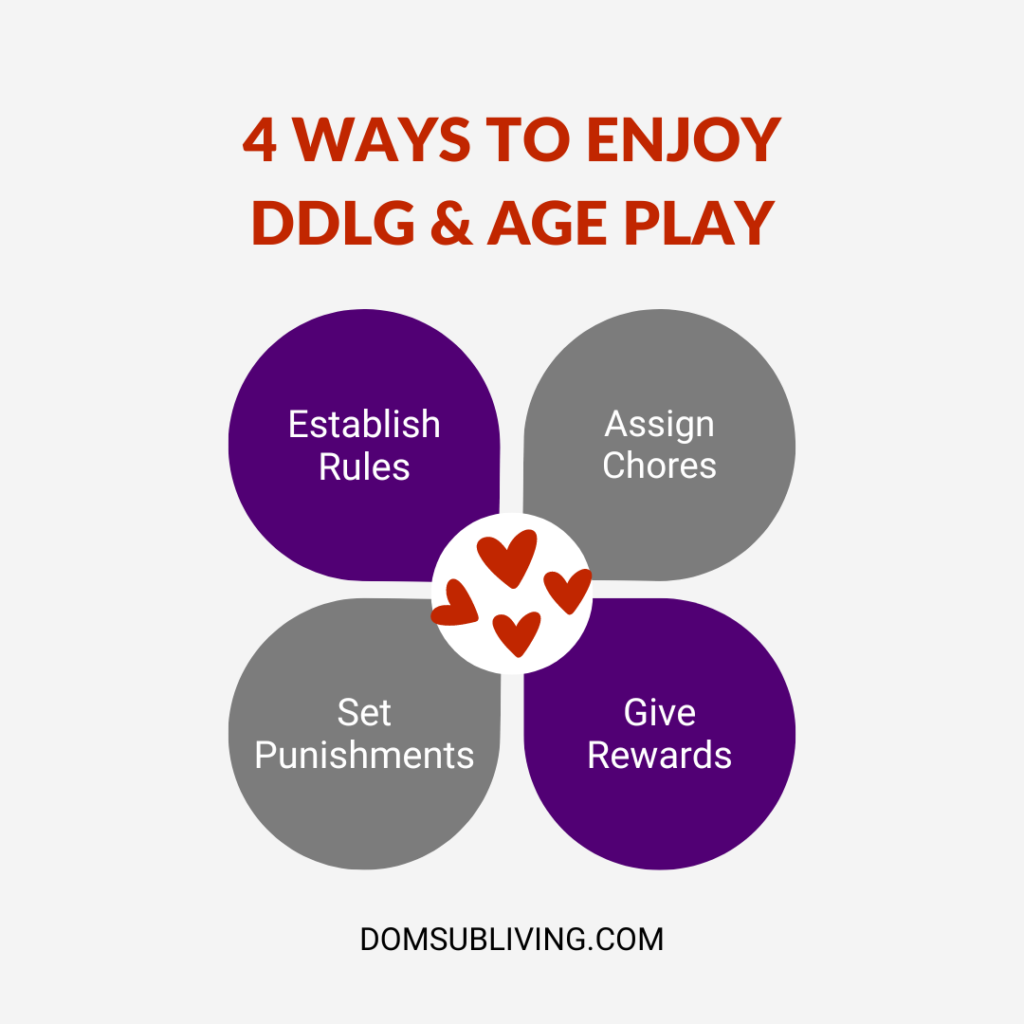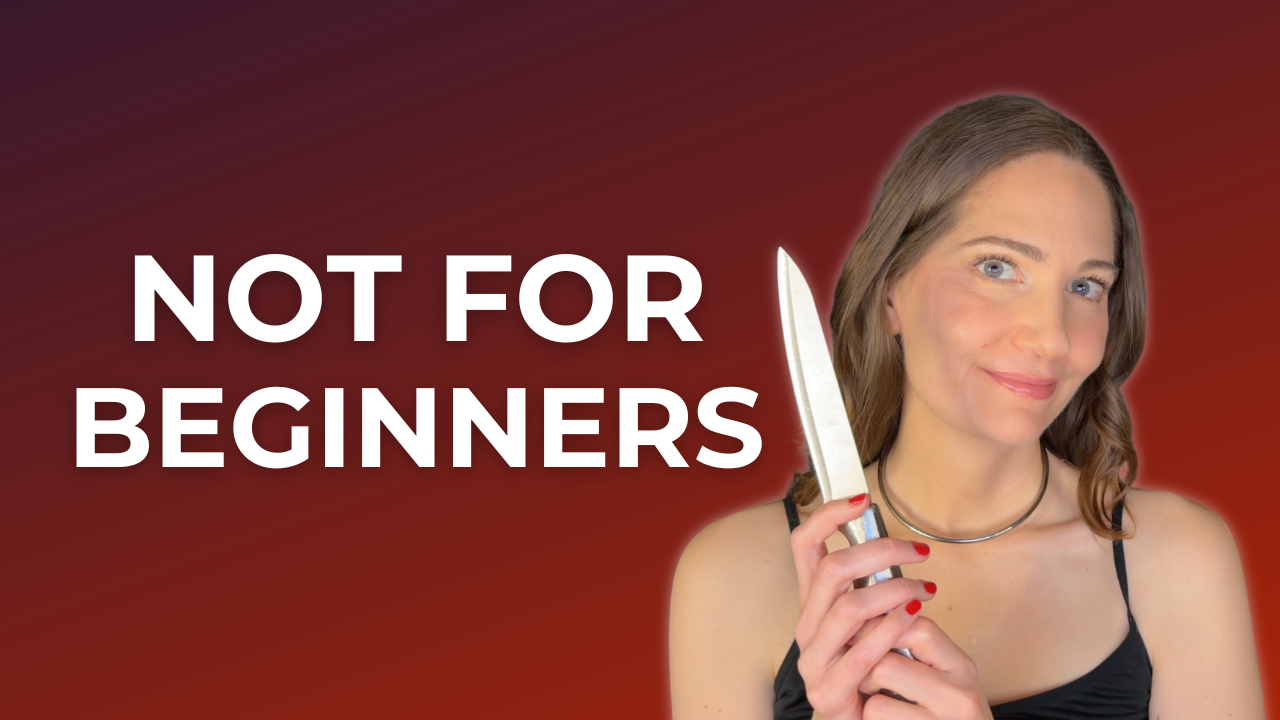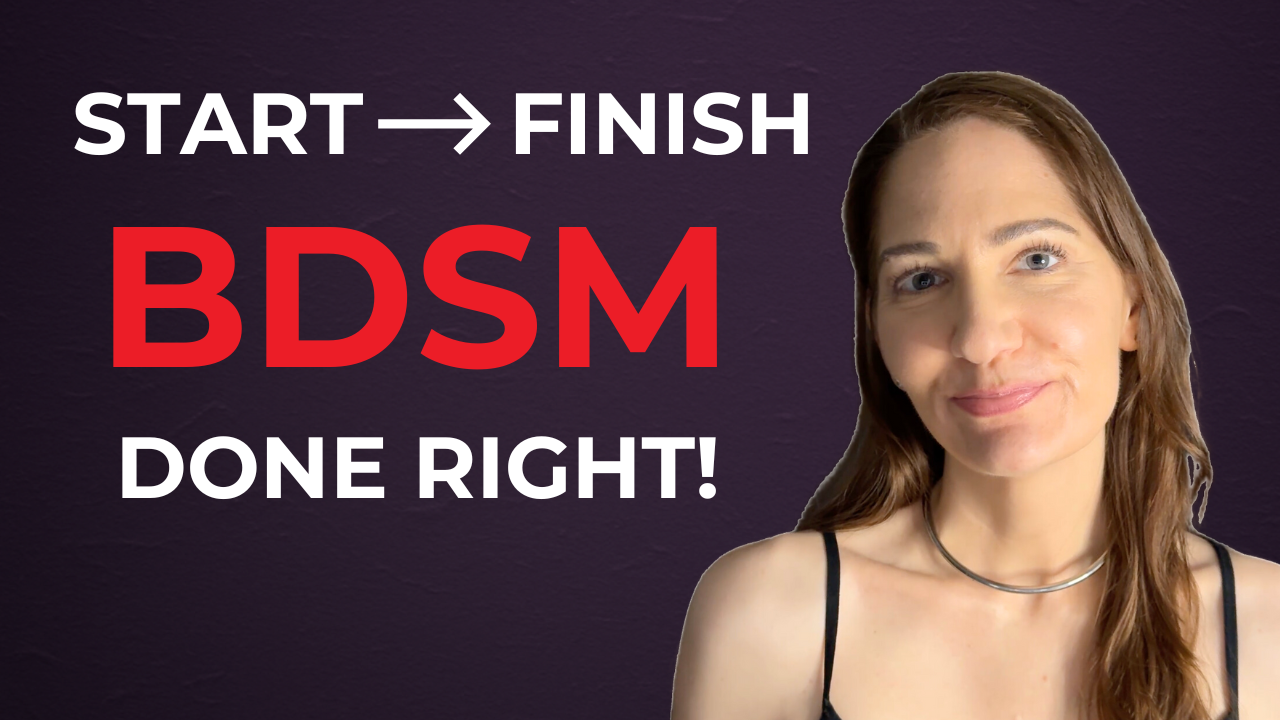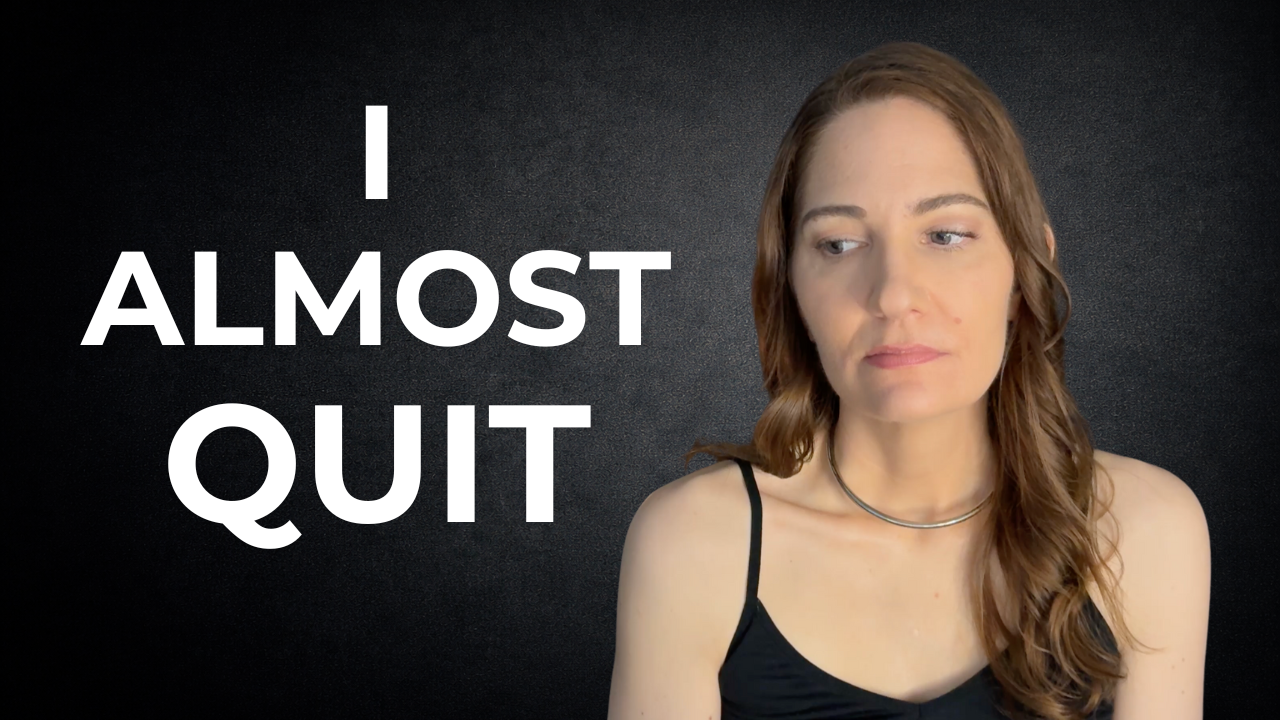
LISTEN TO THE EPISODE:
APPLE PODCASTS | SPOTIFY | IHEART
DDlg and DDbg relationships, short for Daddy Dom/Little Girl dynamics, have captured the imagination of both newcomers to BDSM and seasoned kinksters alike. But what is DDlg really about? If you’ve ever scrolled through social media and wondered if DDlg is just about pacifiers, onesies, and high-pitched voices, you’re not alone. But there’s so much more beneath the surface.
In this guide, I’m digging deeper into the real heart of DDlg, beyond the stereotypes, to give you a grounded, practical understanding. And if you want to start or deepen your dynamic, don’t forget to grab my free list of 20+ DDlg rules, punishments, chores, and rewards here.
IN THIS EPISODE
- What DDlg (Daddy Dom/little girl) relationships are really about – beyond the stereotypes and surface-level aesthetics.
- Who can identify as a little, baby girl, or brat.
- The different roles and headspaces in Caregiver/little (CGL) dynamics, including middles and brats.
- Common mistakes people make when exploring or starting a DDlg or CGL relationship.
- Practical tips and easy rituals for building trust, structure, and connection in your DDlg dynamic.
Is DDlg/DDbg Just About Age Play and Outfits?
Most people’s first image of DDlg is something like stuffed animals, bedtime stories, and calling someone “Daddy.” Those images definitely do appear in many DDlg dynamics, but being a little (or a Daddy/Mommy Dom) is less about the aesthetic and more about the structure and nurture within the relationship.
DDlg is a subset of the broader Caregiver/little (CGL) umbrella. While age play can be involved, the core isn’t about pretending to be a child. It’s about vulnerability, trust, and finding safety in structure, protection, and surrender.
The “Daddy” or “Mommy” is a loving authority—not an overbearing controller. The “little” is someone who feels safest and most fulfilled when allowed to let go and be cared for, whether that means coloring, cuddling, following rules, or asking permission. Most important: it’s NOT about age, gender, or immaturity. Anyone can be a little, and anyone can be a Caregiver.
Who Can Be a Little or a Baby Girl?
Let’s get this clear: identifying as a “little” or “baby girl” is a feeling, not a gender or age. You can be a non-binary little, a middle-aged man with baby boy energy, or a 40-something professional woman who comes alive in little space. Your need for care, affirmation, and softness is valid, no matter your background.
A lot of my community members tell me, “I’m strong and independent but sometimes I need to be cared for. Is that okay?” The answer: absolutely! You can be both strong and soft, independent and dependent. The dynamic is about consensual vulnerability—with someone you trust, on your own terms.
What Does Being a Little or a Baby Girl Really Look Like?
A little’s experience is deeply personal. Here are a few common ways it can look in real life:
- Rules & Rituals: Some thrive when their Dom sets bedtime routines, texting check-ins, or permission protocols.
- Regressive Play: Coloring, cuddling, using a pacifier, or watching cartoons help some regress into a soft, safe ‘little space.’
- Service & Obedience: Littles may serve their Dom quietly (chores, tasks) and feel affirmed by gentle correction.
- Emotional Surrender: Sometimes, DDlg is about softening into emotional safety, being told “I’m proud of you,” and letting someone else carry the load.
Not every little will color with crayons or rock a onesie. Some never “age regress” in the classic sense—they just like being praised and protected. You don’t have to fit a stereotype to belong.
Types of Littles: Not Just Baby Girls
The CGL/DDLG world is vast. Here are a few common roles:
- Littles: Often regress to a young headspace, loving stuffies, naps, and reassurance.
- Middles: Think “tween” or “teen” energy—sassier, more independent, but still enjoying rules and gentle correction.
- Baby Girls/Boys: More of an identity than an ageplay role. They may not regress but crave praise, protection, spoiling, and affection.
- Brats: Playful rule-breakers who push boundaries for connection—not disrespect. Bratting is a valid and enjoyable part of many dynamics (it definitely is in mine!).
Many of us flow between several roles depending on the day, mood, or partner. There are no fixed rules about how you’re “supposed” to be a little—just what feels safe and fulfilling for you.
DDlg vs. DDbg: What’s the Difference?
I get this question a lot! DDlg (Daddy Dom/Little Girl) is often more traditional, with more obvious roleplay and age play elements. DDBG (Daddy Dom/Baby Girl) or CGL (Caregiver/little) is usually less about acting like a child and more about the emotional vibe of surrender, nurturing, and structure.

You don’t have to be “in little space” 24/7. Many baby girls hold down jobs, raise families, and still feel the urge to curl up in their Dom’s lap after a long day.
What Makes a Great Daddy Dom, Mommy Dom, or Caregiver?
A true caregiver Dom isn’t just in charge—they’re responsible. Their most important job? Creating safety, consistency, and guidance—never crushing their partner’s spirit. Doms set rituals and structure, give rewards and consequences, and offer guidance when life gets tough.
One of my favorite rituals with my Dom is our bedtime routine—brushing my teeth, face, and turning in my phone to him. These simple, non-sexual rituals help anchor me, keep me safe, and make me feel cared for, especially in difficult times.
How to Start or Deepen a DDlg Dynamic
If you’re just beginning (or want to strengthen an existing relationship), start small:
- Pick a Ritual: Morning check-ins, bedtime routines, or journaling together.
- Try Nicknames: “Princess,” “Bunny,” “Baby Girl”—whatever makes you feel soft and seen.
- Set Playful Rules: “No screens after 9pm,” “Ask permission for snacks,” or “Send me a good night text.”
- Reward Systems: Sticker charts, cuddle coupons, or words of affirmation.
Remember: gentle, consistent correction works best, and if your Dom is new to caregiving, that’s okay. These skills can be learned!
DDlg Doesn’t Mean Immaturity or Infantilism
One of the biggest challenges—especially for independent, adult women—is fear of feeling “childish” or “silly.” The truth is: DDlg isn’t about maturity, it’s about intimacy and connection. There’s nothing wrong with needing structure, praise, or care. Wanting to be cherished doesn’t make you less grown-up. It makes you human.
Start Your Journey
Ready to explore? Download my free DDlg starter list of rules, punishments, chores, and rewards below. Remember, your way of doing DDLG is valid, and you are never too old, too strong, or too complicated for care.
Links From the Episode:
Want more? Sign up for my newsletter and get BDSM tips on the regular.



